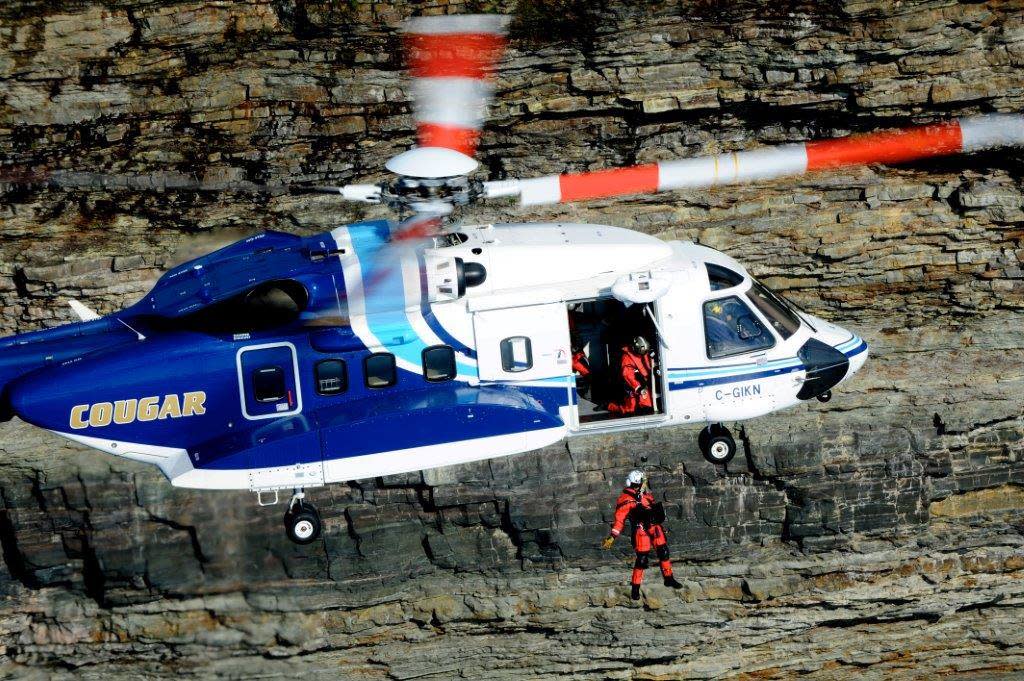Cougar flights back in the air after one-day pause in wake of fatal Norwegian crash


One person has died following a helicopter crash off the coast of Norway Wednesday night, according to Equinor. (Cougar Helicopters Inc./CBC)
After a brief pause, Cougar Helicopter offshore flights resumed Friday, according to its flight schedule.
The decision to ground flights to and from the province's offshore oil fields came after a fatal crash off Norway's coast left one person dead on Wednesday.
In a statement, Norwegian-based oil giant Equinor said the helicopter crashed outside Bergen, Norway, and the deceased was an Equinor employee. The helicopter was on a search and rescue training assignment. The cause of the crash is currently unknown.
Cougar Helicopters did not respond to requests for comment by publication time.
The helicopter in the crash was a Sikorsky S-92 model, the same model that is used to take offshore workers from Newfoundland and Labrador to all four oil-producing fields and any exploration drill rigs.
A Sikorsky S-92 model was also the same model that crashed off the coast of Newfoundland on March 12, 2009, killing 15 people.
Equinor beefs up fleet
On Friday morning, Equinor announced it was resuming flights using the Sikorsky S-92 helicopters that fly to the Norwegian continental shelf (NCS).
In a statement, the company said the decision to resume flights was made with the aviation authorities, helicopter operators, trade unions, and NCS operating companies.
"Flight safety and the safety of everyone travelling by helicopter is fundamental to our operations," said Kjetil Hove, executive vice president for Exploration & Production Norway, in a statement. "Based on dialogue with the Civil Aviation Authority, there are no indications that helicopter safety on the NCS is reduced."
The statement also said the Norwegian Safety Investigation Authority arrived in Bergen on Thursday and the investigation into the crash has started.
In a separate statement from Equinor on Friday, it also announced it was increasing its fleet of helicopters by 15 for passenger traffic on the NCS.
The helicopters were purchased from manufacturers, and 10 were sourced from Bell and the other five are from Leonardo.
"These helicopter types will supplement the current Sikorsky S-92," said Hove in a separate statement. "All three helicopter models meet stringent safety requirements."
"By increasing from one to three helicopter models on the NCS, we get more flexibility and regularity."
The new helicopters were to be delivered over a period of five years, the first arriving next year and the rest continuing through 2030, added the statement.
Unions and safety delegates also included comments in Equinor's statement, saying they were involved in the procurement process and were pleased with the purchases.
"These helicopters have the quality and characteristics that we need offshore," they said in a joint statement.
Download our free CBC News app to sign up for push alerts for CBC Newfoundland and Labrador. Click here to visit our landing page.


